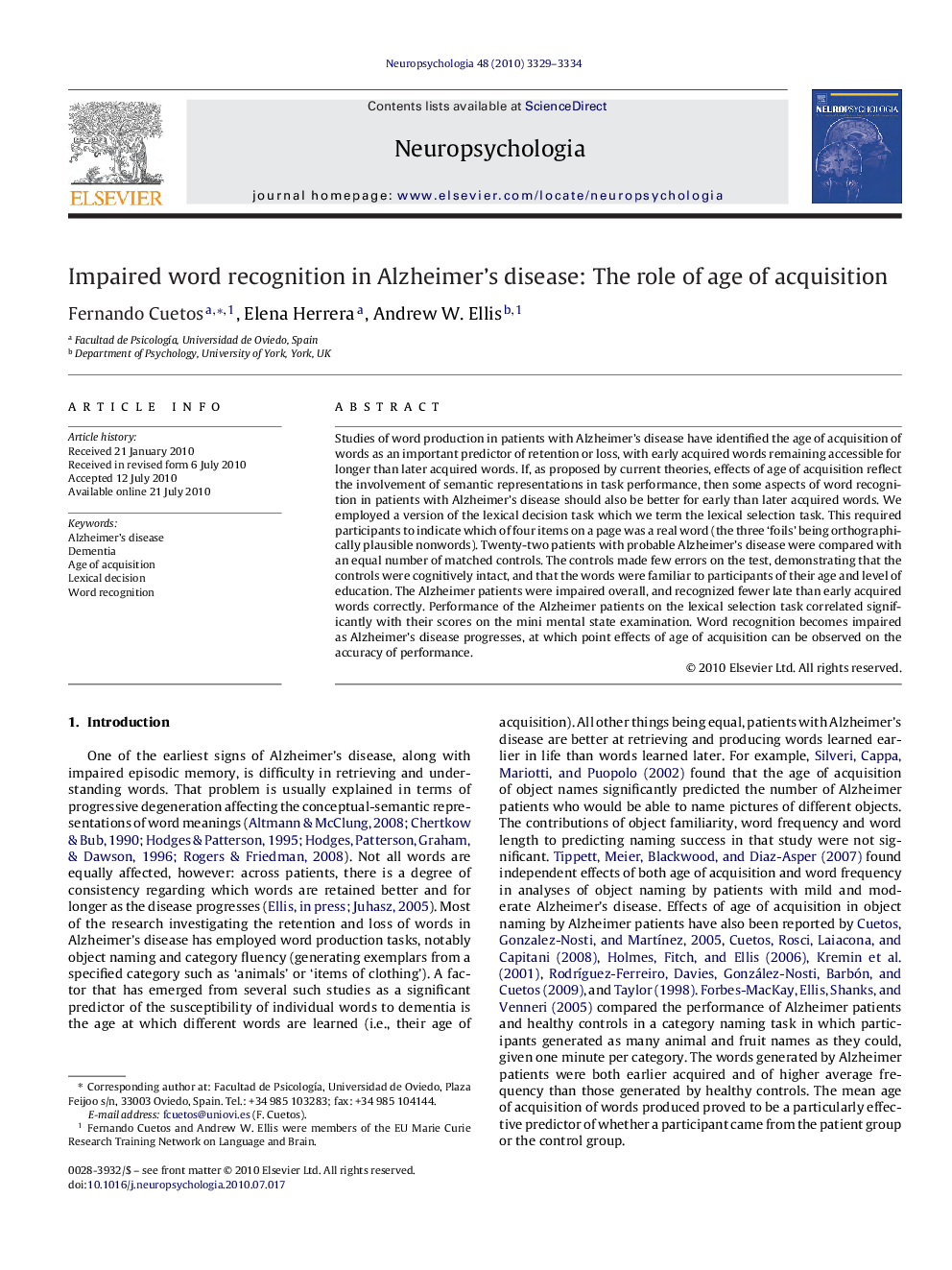| Article ID | Journal | Published Year | Pages | File Type |
|---|---|---|---|---|
| 10466010 | Neuropsychologia | 2010 | 6 Pages |
Abstract
Studies of word production in patients with Alzheimer's disease have identified the age of acquisition of words as an important predictor of retention or loss, with early acquired words remaining accessible for longer than later acquired words. If, as proposed by current theories, effects of age of acquisition reflect the involvement of semantic representations in task performance, then some aspects of word recognition in patients with Alzheimer's disease should also be better for early than later acquired words. We employed a version of the lexical decision task which we term the lexical selection task. This required participants to indicate which of four items on a page was a real word (the three 'foils' being orthographically plausible nonwords). Twenty-two patients with probable Alzheimer's disease were compared with an equal number of matched controls. The controls made few errors on the test, demonstrating that the controls were cognitively intact, and that the words were familiar to participants of their age and level of education. The Alzheimer patients were impaired overall, and recognized fewer late than early acquired words correctly. Performance of the Alzheimer patients on the lexical selection task correlated significantly with their scores on the mini mental state examination. Word recognition becomes impaired as Alzheimer's disease progresses, at which point effects of age of acquisition can be observed on the accuracy of performance.
Related Topics
Life Sciences
Neuroscience
Behavioral Neuroscience
Authors
Fernando Cuetos, Elena Herrera, Andrew W. Ellis,
